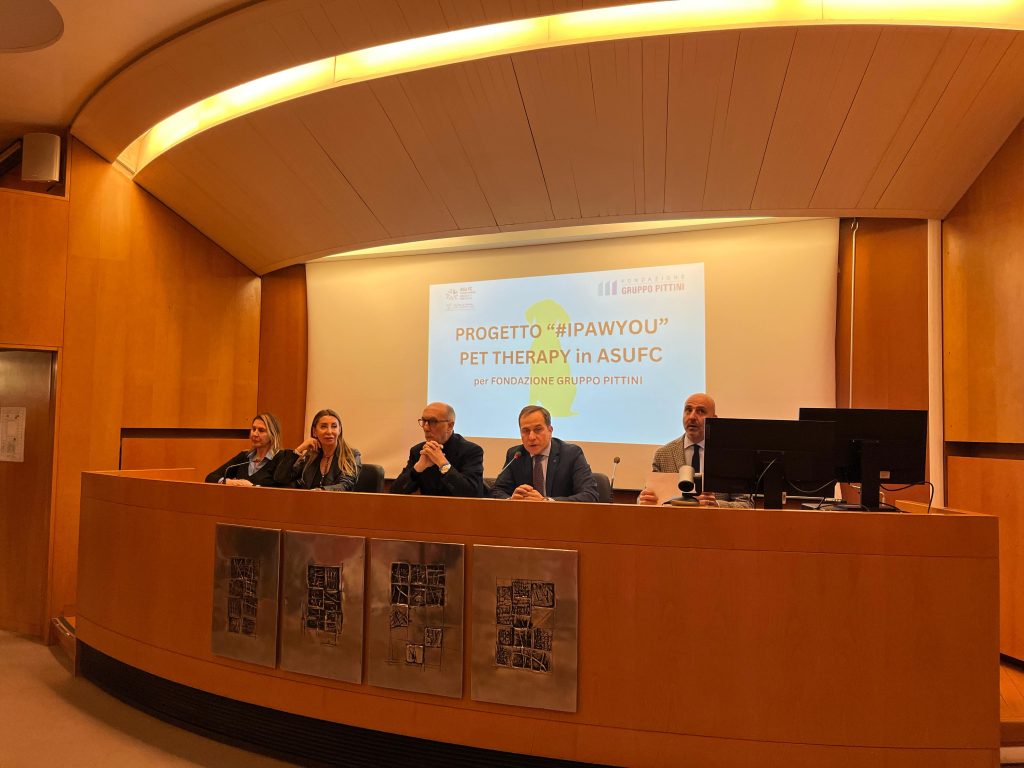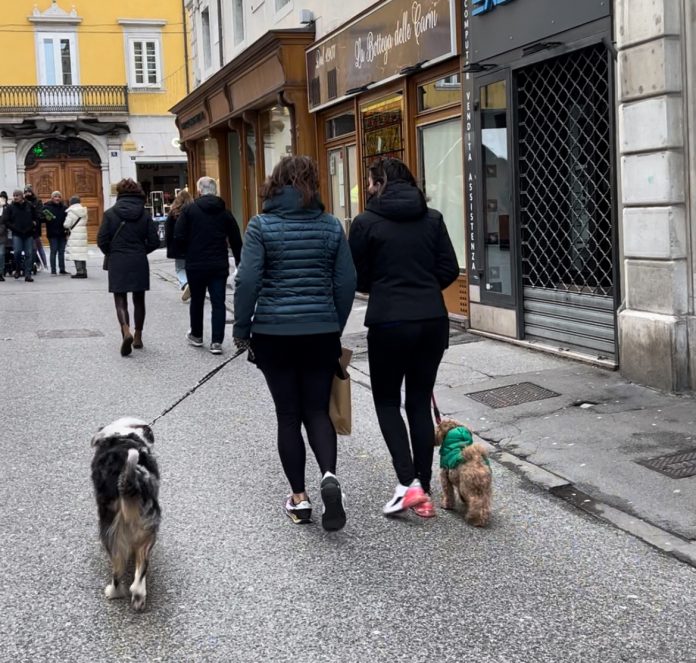by EH
In a significant development supported by the Pittini Group Foundation and in collaboration with professionals from Central Friuli University Hospital (Asufc), healthcare is poised for a transformation with the introduction of Pet Therapy. The recently revealed project serves as a notable example of a well-considered public-private partnership, seen as essential for strengthening a system advocated by healthcare professionals.

The focus here is on a collaborative effort, with the public guiding the way and ensuring collective interests are safeguarded, all without perceiving any threat from private initiatives that could potentially foster growth. A broader alliance is seen as a strategic approach to effectively navigate the complex challenges of today’s healthcare landscape.
These sentiments were conveyed by Riccardo Riccardi, the regional assessor for Health, Social Policies, and Disabilities, during a press briefing held today at the Perraro hall of the Santa Maria della Misericordia Hospital in Udine. He introduced the #IPAWYOU project – Pet Therapy, or animal-assisted therapy – slated for implementation in the services of Central Friuli University Hospital, thanks to a significant contribution from the Pittini Group Foundation. Also present were Denis Caporale, the general director of Asufc, along with the medical director, David Turello, and Simona Ferri Pittini, the vice president of the Foundation.
#IPAWYOU is positioned as a “pilot” initiative, with the Pittini Group Foundation fully covering its costs. Initial activation will focus on Eating Disorders in Palmanova and Udine, as well as pediatric hospitalizations in Udine, Latisana, San Daniele del Friuli, Tolmezzo, and the adolescent day center Color@do in via del Pozzo in Udine. Building on existing synergies between Pediatrics and Day Centers in specific areas, the project aims to establish a proven “modus operandi” to be replicated in other Districts down the line.
“We must have the courage to overcome unsustainable organizational models,” stressed the representative of the Fedriga Government, expressing gratitude to Asufc for seizing the opportunity and to the Pittini Group Foundation for their support. “The project represents an intriguing, innovative approach that I hope can be extended to promote solutions influencing not just organizational levels but also the culture of our professional system, enabling us to initiate care opportunities and responses to health needs different from the past.”
The “pilot” projects will address cases involving eating disorders, the transition to adulthood, emotional disorders, motor coordination issues, and hospitalizations in pediatric hospitals. “In the initial phase,” highlighted Riccardi, “about 100 users will be involved in the first 12 months, with ambitious and highly relevant objectives.”
A working group will be established, featuring collaboration between operators from Child and Adolescent Neuropsychiatry (Npia) and animal handlers (in this case, dogs), along with introductory meetings between the parents of the minors involved in the project and the animal/handler pair. An evaluation of the therapy’s effects will also be conducted through the administration of questionnaires at the beginning and end of treatment, the completion of a journey diary, and tests to measure the achieved results.
As highlighted in the press conference, animal-assisted therapy produces various benefits: calming effects have been observed between the child and the dog, leading to a reduction in anxious states and the development of non-verbal emotional communication and positive behaviors, contributing to increased self-esteem. This initiative marks a promising stride in reshaping the future of healthcare with innovative and compassionate solutions.





























